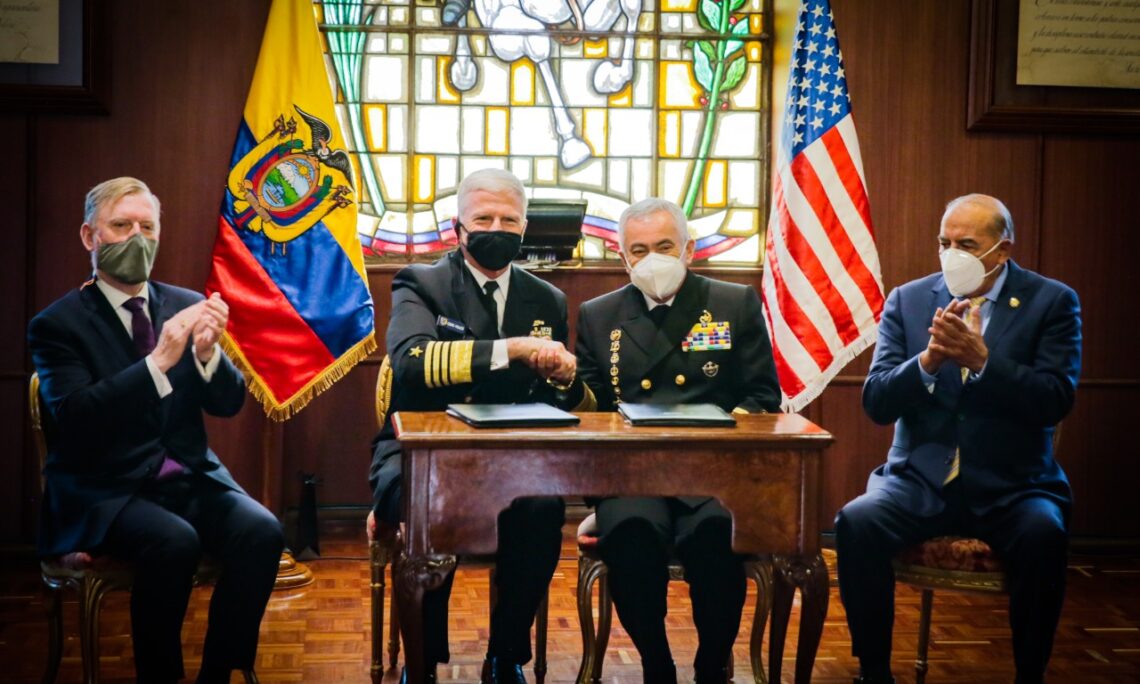RIO DE JANEIRO, BRAZIL – “The current prison situation in Ecuador is caused by transnational crime and its local partners,” is how U.S. Ambassador to Ecuador Michael J. Fitzpatrick described the prison crisis.
The diplomat is not wrong: Los Choneros is currently an armed wing of the Sinaloa Cartel, while rival gangs Los Tiguerones, Los Lobos, and Los Largartos are linked to the Jalisco Cartel – New Generation.
The dispute between these transnational organized crime mega-gangs has reportedly sparked the armed clashes that have left around 240 people dead in prisons since February 2021.
Read also: Check out our coverage on Ecuador
The roots of the violence date back to 1998 when Jorge Bismark Véliz España, alias Teniente España, founded the criminal organization Los Choneros. Following Veliz’s death in the early 2010s, Jorge Luis Zambrano, alias Rasquiña, assumed command of the criminal gang. However, Rasquiña was captured and imprisoned in 2011. Rasquiña’s leadership began a decade of transition for the Choneros.

Initially, the group was an armed wing of a Colombian drug trafficking cartel, controlling the Pacific maritime routes to Mexico and the United States. Despite Rasquiña’s arrest, like others in his gang in 2011, and his integration into the prison system, the organization slowly became an armed wing of Mexico’s Sinaloa Cartel.
Rasquiña kept the lower structure left by Veliz in check and integrated new gangs. He then achieved such public notoriety that in 2011 President Rafael Correa even offered to pardon Los Choneros in exchange for their capitulation.
Guayaquil is today the territorial stronghold of Los Choneros. However, it is also the historical stronghold of Los Lagartos, their prominent rival gang, which is at war with Los Choneros to control criminal economies. These are the main gangs fighting each other for control of the country’s prisons.
The Litoral Penitentiary, the scene of the recent massacres and where armed riots between prison gangs take place, has 12 prison wards under the leadership of different gang leaders. In some cases, the same gang holds a leadership position in 2 or 3 wards.
There are 7 leaders of the dominant prison gangs in Ecuador: Jose Macias alias Fito, of the Choneros; Benjamin Camacho alias Ben-10, of the Chone Killers; Christian Mantilla alias Choclo, of Los Lagartos; Junior Roldan alias Junior, of Los Choneros; William Alcivar alias Negro Willy, of Los Tiguerones; Wilmer Chavarria alias Pipo, of Los Lobos; and Carlos Macias, alias El Diablo, of the Latin Kings.
After the death of Jorge Luis Zambrano, alias Rasquiña, the current leaders of two chonero factions, alias Junior and alias Fito, seek control of the prisons with the support of the Sinaloa Cartel. The two attempted to occupy Ward 5, dominated by a single criminal organization: Los Fatales. This triggered an intense armed confrontation. Initially, they killed a few people but then retaliated with reprisals that left dozens dead.
“Corruption threatens the stability of countries and the security of their citizens. Corruption impedes economic growth, undermines human rights and democracy, and destroys confidence injustice and other public institutions. No country can combat these problems alone; however, we can make our people safer, we can also promote transparency and accountability by working together,” the U.S. ambassador said in statements reported by El Universo.
He added that “it is also a clear reminder of the importance of continued multinational cooperation in the fight against drug trafficking. We see around the world examples of how transnational organized crime seeks to corrupt judicial outcomes, undermine legitimate business and threaten the lives and safety of both government officials and citizens alike.”
The United States and Ecuador have signed a regional agreement to fight drug trafficking that aims to exchange data and information that will allow military forces to work “in a dynamic, coordinated, planned and permanent manner to combat illicit trafficking, humanitarian support assistance, aid in cases of natural and man-made disasters, among others.”

